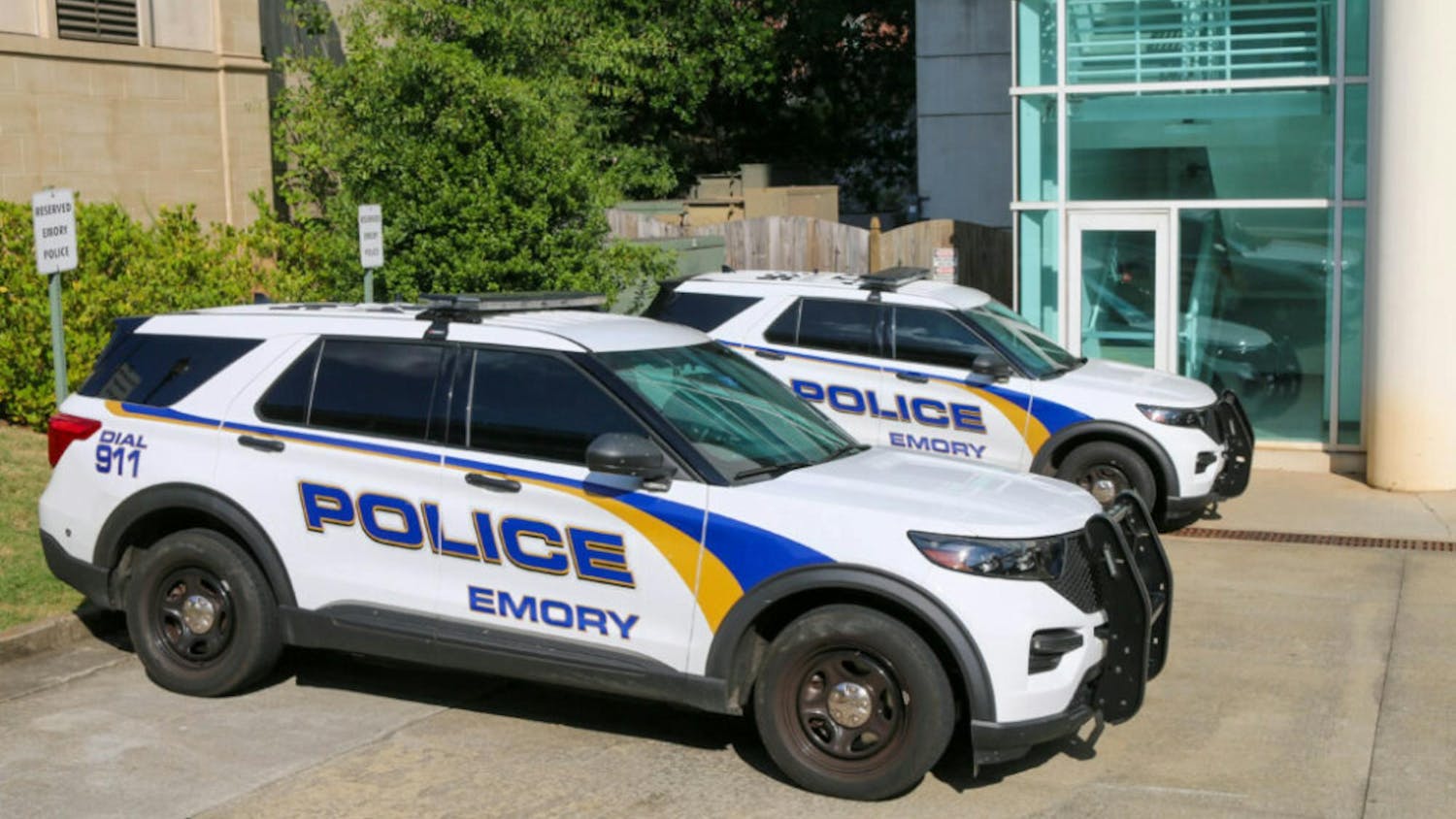After Georgia Gov. Brian Kemp signed the heartbeat bill banning abortion after six weeks of conception on May 7, Emory School of Medicine students Anders Olsen (18C, 22M), Harrison Goodall (22M), Mackenzie Bennett (22M), and Johnathan Kofi Vordzorgbe (22M), among many other medical students, decided to help secure safe reproductive services for women in Atlanta.
Bennett, who grew up in Georgia, noted that the state has “one of the worst maternal mortality rates in the entire country.” As a Georgia resident, learning this statistic pushed her to take a stance on the issue.
After the legislation passed, her fellow students began to take a serious interest in reproductive justice. As future health care professionals, they felt a burgeoning sense of civic duty.
“I think it is crucial that physicians find ways to advocate for policies that positively impact their patients because policy and social programs have a considerable impact on the outcomes experienced by patients,” Olsen said. “This is especially important for vulnerable patient populations that already experience numerous social determinants of health.”
Realizing the importance of advocacy for safe abortions and reproductive care from those involved in the field, Olsen, who played violin for four years in the Emory University Symphony Orchestra, has managed to combine social justice and the arts into a fully-fledged cause.
On Nov. 10 from 6 p.m. to 10 p.m., the students will host a concert in Candler Park to raise money for the Feminist Women’s Health Center, which provides comprehensive OB-GYN and reproductive healthcare to women of the Atlanta area regardless of health insurance status, as a way to counteract the heartbeat bill. A variety of artists from Emory and the greater Atlanta area will also perform, and blues singer Ruby Valle will headline the concert. The event organizers ask for a $15 donation with hopes of raising at least $10,000.
Olsen felt that the concert would be a means to advocate for important causes rather than just pure entertainment.
“I am [now] doing that same thing; however, this concert just happens to include a fundraiser for an issue I am passionate about,” Olsen said.
Goodall noted the importance of getting more Emory students and staff involved in activism in Atlanta in order to provide vulnerable populations with basic human rights and proper medical attention.
“It’s often difficult to get Emory students mixed with activists from other parts of the city,” Goodall said. “[We hope] to create a coalition … between Emory health students and activists working within reproductive health and other activist community work within the city.”
In the future, Goodall hopes to encourage medical students to become better informed on issues regarding reproductive rights. He also plans to bring more events about reproductive rights to Emory’s campus and would like to see more cross over between graduate and undergraduate divisions to create a stronger coalitions to advocate for different issues on local, state and national level.
“I think it would be amazing to see Emory support students to go to protests and gatherings across the country, which would increase Emory's reputation has a social aware institution,” he said.
But this is not the first time that Olsen, Bennett and Goodall have taken on a role as activists.
Goodall is a member of Emory Medical Alliance, which is the medical school's LGBTQ+ advocacy group and Emory’s chapter of Physicians for Human Rights, which works with asylum seekers in the Atlanta area. He is also working to fight against proposed legislation that would decrease the access to various necessary medical therapy for transgender youths. He said this work has contributed to his interest in reproductive justice.
“[Transgender] men and non-binary folks are greatly affected but often forgotten when discussing reproductive health,” he said.
Olsen is a member of Health Students Taking Action Together (H-STAT) at Emory. As a part of H-STAT, Olsen went to Washington D.C. and supplied legislators with policy briefs that supported an increase in Medicaid and detailed the importance of such an increase for Georgia residents.
“H-STAT is a great organization that provided me the skills to advocate on the policy level,” Olsen said. “They gave me the confidence to approach state legislators and tell them why certain policies were important for the state.”
Bennett, who plans to become an OB-GYN, recognized her duty to support the choices of individuals regarding their health and to make sure they have access to the resources they need. She said she wants to ensure that everyone has access to reproductive services such as contraceptives, prenatal care and pregnancy termination options.
“This is important to me because it affects everyone with a uterus, which is 50 percent of the population,” Bennett said.
Bennett is the president of Emory’s chapter of Medical Students For Choice (MSFC), a national organization that works to ensure medical students and trainees are educated about all aspects of reproductive health care, including abortion.
“I felt frustrated and helpless in the midst of the legislation for [the heartbeat bill] and the trend of laws like it across the country, so I decided I needed a way to channel that frustration into doing something about it,” Bennett said.
Bennett reached out to the national arm of MSFC when she was a first-year medical student in 2019, but was informed that the Emory chapter had gone inactive. Since then, she has brought MSFC back to campus and gave other students an opportunity to get involved in reproductive justice advocacy.
Hoping to get more students involved in advocacy, Bennett emphasized that anyone can be an advocate, no matter how little experience they have.
“Being plugged into a diverse network with the same goal is more impactful than keeping to yourself,” Bennett said. “Don’t be afraid to ask for help or admit when you don’t know something. Being willing to learn [and] grow is an important part of effective advocacy.”





